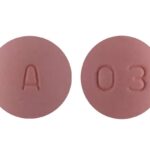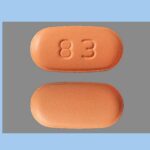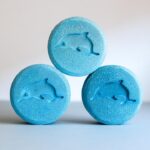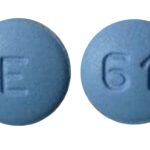Blue D 24 Pills: Uses, Dosage, Side Effects, Interactions
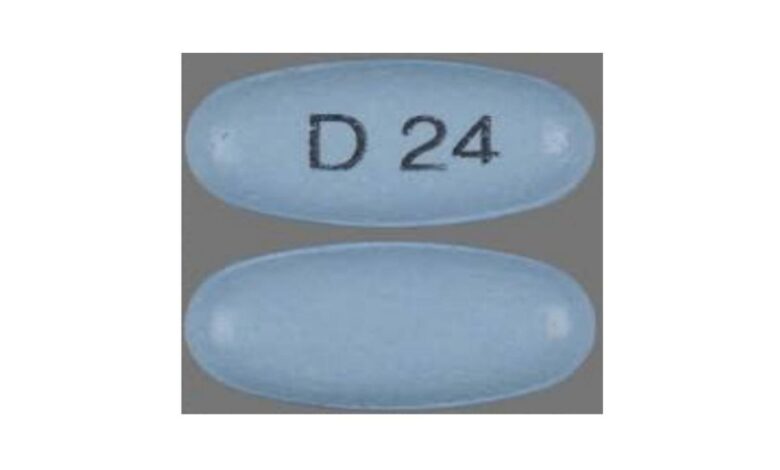
The blue, elliptical / oval pill with the imprint D 24 has been identified as Clarinex-D 24 Hour 5 mg / 240 mg supplied by Schering-Plough Corporation. Clarinex-D 24 Hour is used in the treatment of allergy symptoms such as watery eyes, runny/stuffy nose, itching eyes/nose, and sneezing. It contains 2 medications: desloratadine and pseudoephedrine. Desloratadine is an antihistamine and works by blocking a certain natural substance (histamine) that your body makes during an allergic reaction. Pseudoephedrine is a decongestant and works by narrowing the blood vessels in the nose to decrease swelling and congestion.
This medication is not recommended for use in children younger than 12 years of age due to the large amount of pseudoephedrine in it.
How to use Blue D 24 Pills
Read the Blue D 24 Pills Patient Information Leaflet if available from your pharmacist before you start taking this product and each time you get a refill. If you have any questions, ask your doctor or pharmacist.
Take Blue D 24 Pills by mouth with or without food as directed by your doctor. Do not crush or chew extended-release tablets. Doing so can release all of the drug at once, increasing the risk of side effects. Also, do not split the tablets unless they have a score line and your doctor or pharmacist tells you to do so. Swallow the whole or split tablet without crushing or chewing.
Do not increase your dose or take this medication more often than directed. Tell your doctor if your condition does not improve or if it worsens.
What are the possible side effects of Blue D 24 Pills?
Get emergency medical help if you have signs of an allergic reaction: hives; difficult breathing; swelling of your face, lips, tongue, or throat.
Stop using this medicine and call your doctor at once if you have:
• a light-headed feeling, like you might pass out;
• tremors;
• severe weakness;
• irregular heartbeats;
• a seizure; or
• a severe skin reaction–fever, skin redness, small pimples.
Common side effects may include:
• drowsiness, dizziness;
• headache
• nausea, loss of appetite;
• sleep problems (insomnia); or
• dry mouth, sore throat.
This is not a complete list of side effects and others may occur. Call your doctor for medical advice about side effects. You may report side effects to FDA at 1-800-FDA-1088.
What medications interact with Blue D 24 Pills?
Drug interactions may change how your medications work or increase your risk for serious side effects. This document does not contain all possible drug interactions. Keep a list of all the products you use (including prescription/nonprescription drugs and herbal products) and share it with your doctor and pharmacist. Do not start, stop, or change the dosage of any medicines without your doctor’s approval.
Taking MAO inhibitors with this medication may cause a serious (possibly fatal) drug interaction. Avoid taking MAO inhibitors (isocarboxazid, linezolid, methylene blue, moclobemide, phenelzine, procarbazine, rasagiline, safinamide, selegiline, tranylcypromine) during treatment with this medication. Most MAO inhibitors should also not be taken for two weeks before treatment with this medication. Ask your doctor when to start or stop taking this medication.
Check the labels on all your medicines (such as cough-and-cold products) because they may contain similar ingredients (decongestants such as phenylephrine). Ask your pharmacist about using those products safely.
Desloratadine is very similar to loratadine. Do not use medications containing loratadine while using desloratadine.
This medication may interfere with certain laboratory tests (including allergy skin testing), possibly causing false test results. Make sure laboratory personnel and all your doctors know you use this drug.

